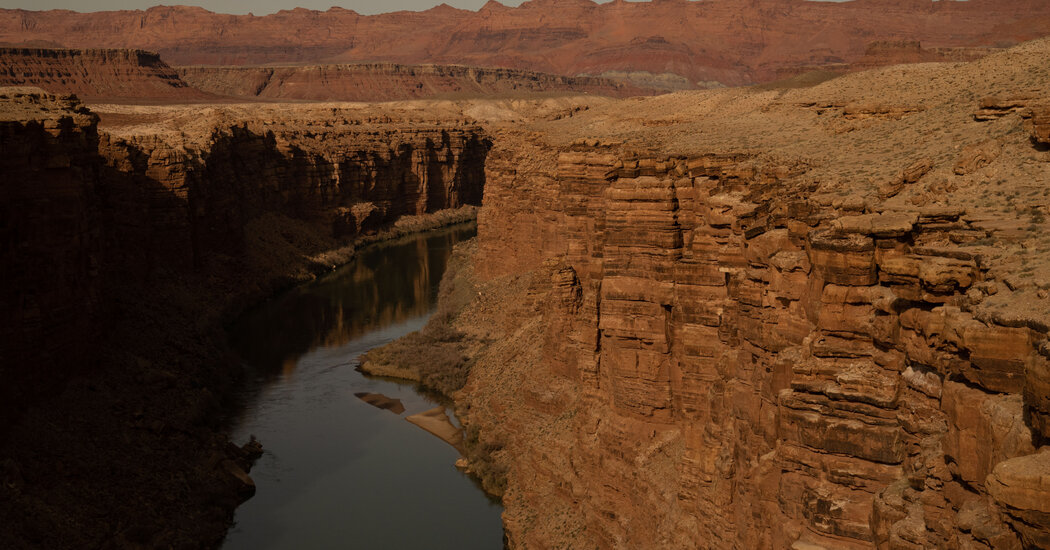The seven states that rely on the Colorado River for drinking water missed a Tuesday deadline to agree on reduced shares as the river’s flow continues to decline dramatically.
But the states and the U.S. Bureau of Reclamation, which manages the river and its reservoirs, said that negotiations would continue, citing “extraordinary pressure on this critical water resource that supports 40 million people, tribal nations, agriculture and industry.”
“While more work needs to be done, collective progress has been made that warrants continued efforts to define and approve details for a finalized agreement,” the state and federal officials said in a joint statement.
At issue is whether states will agree to permanent, voluntary water usage cuts. Those in what is known as the river’s lower basin — Nevada, Arizona and California — agreed to temporary reductions in 2023. The upper basin states — Colorado, Utah, Wyoming and New Mexico — use less water when the snowpack that feeds the river is scarce, but have resisted calls for further cuts.
The states have been negotiating for years, stuck at an impasse over how much water must reach downstream communities in the three lower basin states.
They face mounting pressure as rules that govern water apportionment expire at the end of the year, and as forecasts suggest reservoir levels could drop to critical lows within decades.
The post States That Rely on the Colorado River Miss Deadline to Agree on Cuts appeared first on New York Times.




